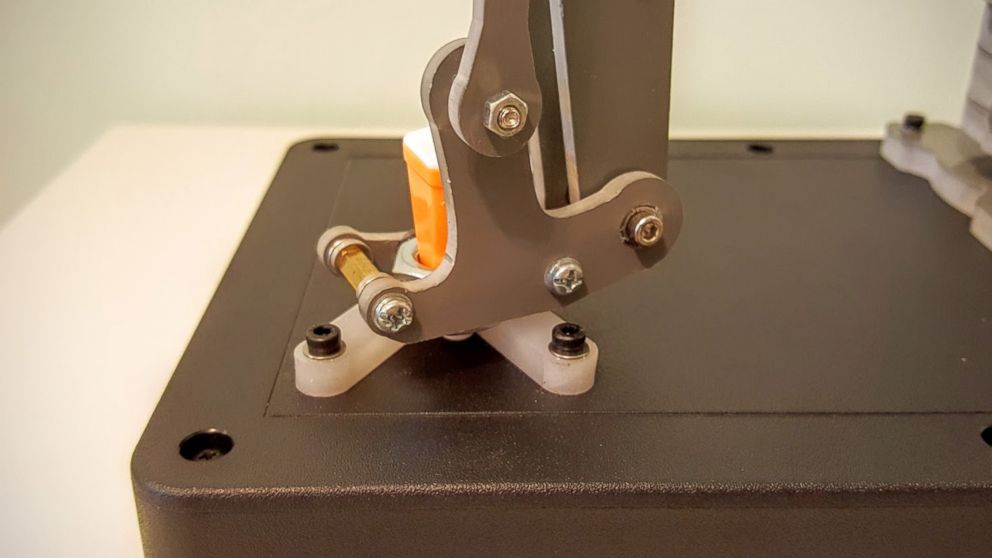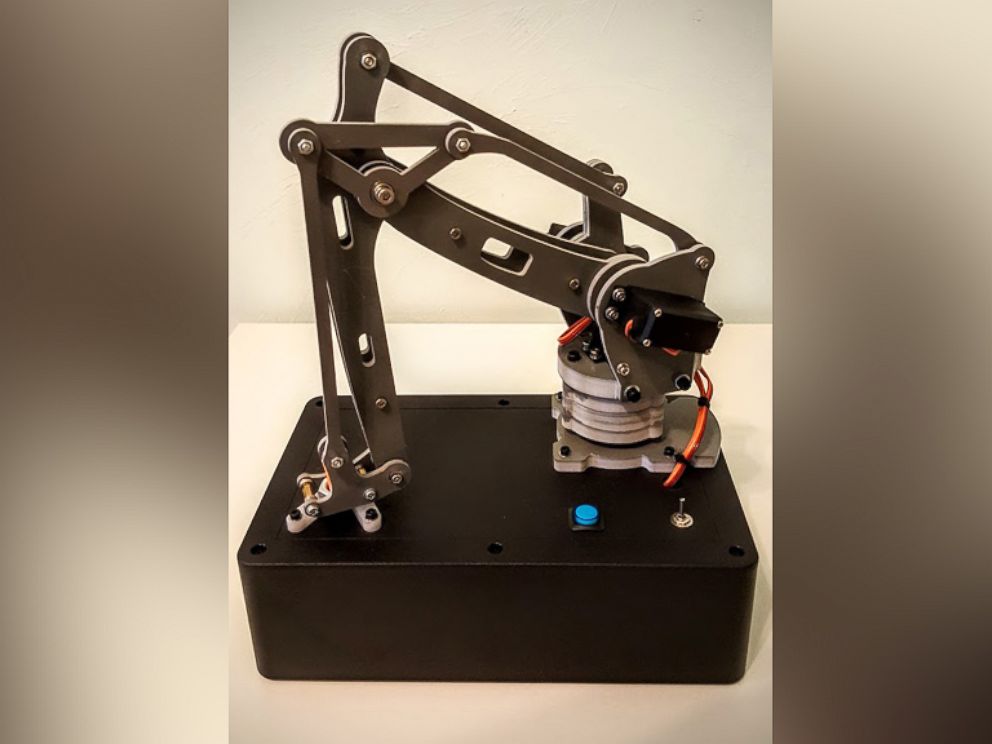This Robot Can Decide When to Inflict Pain on Humans
Creator hopes it will spark debate about the future of artificial intelligence.

— -- A future robotic uprising may have just been equipped with a new tool, with the creation of an artificially intelligent machine capable of deciding whether or not to prick a person's finger.
Alexander Reben, a roboticist and artist based in Berkeley, California, told ABC News he wanted to create a machine that would spur debate around sci-fi author Isaac Asimov's "First Law" of robotics, which says a robot may not harm a human being, or by its inaction allow a human being to be harmed.
"I tried to develop something that was the least amount of injury possible and a pin does that because it makes you bleed," Reben said. "The interesting part, to me, are the ethical and philosophical ramifications of this existing."
If a person dares to put their finger near the robot, it will make a decision using an algorithm as to whether or not to prick the person's finger. Reben said the algorithm is set up in a specific way so even he cannot predict the robot's decision.
"From a philosophical point of view, it is important I cannot predict the outcome of what will happen because people will wonder am I responsible or is the robot?" he said.

Building the robot took a just a few days for Reben, who said he used a similar robot arm from one of his previous projects, a robot that can scratch a human's head. While some people are wary about taking a chance on being pricked, Reben said he's had no shortage of volunteers around his lab who want to try it.
"People are curious to see what it’s like to have an experience with this thing and that is why it's important for me to build it," he said. "It's easy to put this in a thought experiment, but once it’s a physical thing, you have to confront it in a different way. It’s a lot easier to have this gut emotion reaction when this exists."




